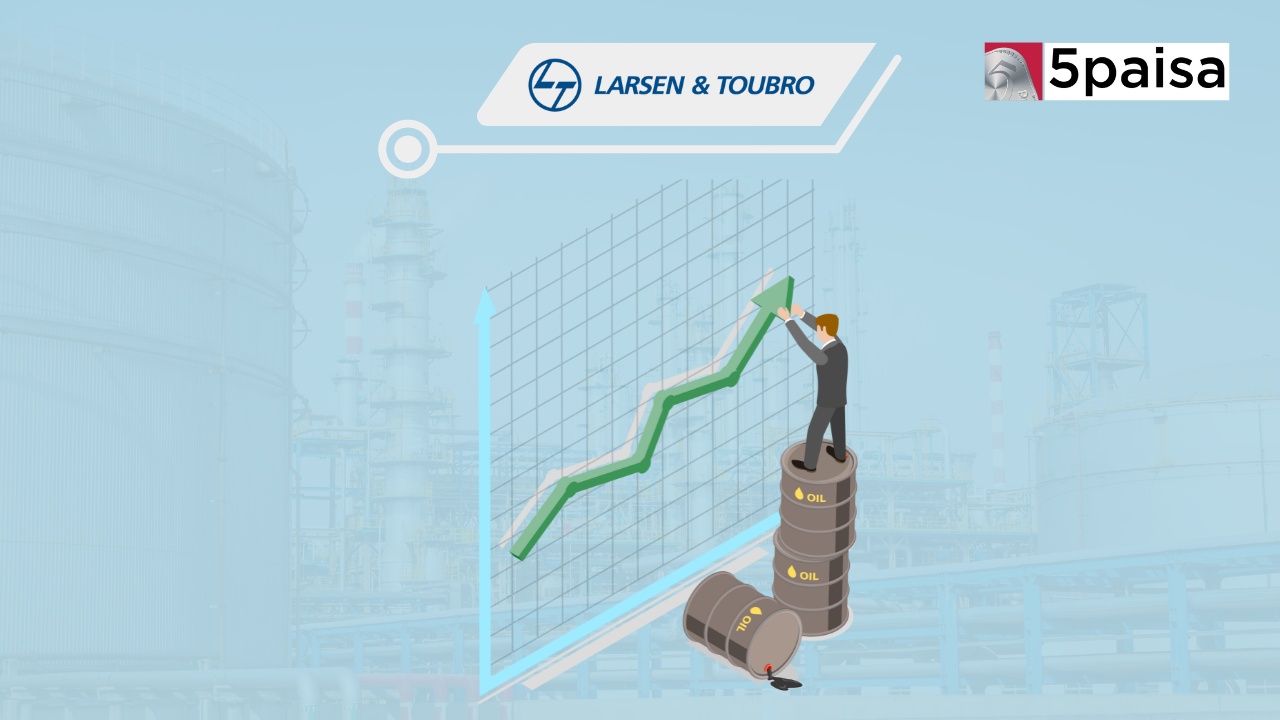L&T Eyes $50-$60 Billion Projects by FY25, Plans Major O2C Investments
Indian Equity Markets to Shift to 1-Hour Settlement And then Instant Settlement

Last Updated: 13th September 2023 - 02:49 pm
SEBI to take the big leap on settlements
The SEBI chairperson, Madhabi Puri Buch, is a regulatory chief in a hurry to transform the Indian markets. This time around, the benchmark is not the developed markets of the US, Singapore, or Europe. The idea is to create a benchmark right here in India. Just in July this year, SEBI had announced that the regulator was working hard towards launching real-time settlement of trades. However, as the first step, SEBI is planning to implement one-hour settlement of trades from the first half of 2024 and then a decision on instant trade settlement will be taken based on the technical and operational feasibility. According to Madhabi Puri Buch, the 1-hour settlement of trades is even possible today with the current existing technology stack and the existing ecosystem of the market infrastructure institutions (MIIs). However, the instant settlement system may not be possible at the current juncture and may require more tweaking of technology and process involved.
How does clearing and settlement work in practice
Once the trading for the day is completed, the market infrastructure institutions consisting of the depositories, back office of brokers, clearing members, clearing houses and banks start the work towards clearing and settlement of trades. The first step is clearing, which entails working out and determining the net credits and net obligations of various clearing members and the individual traders in the market. This step is important because traders have intraday trades and delivery trades during the day and hence the net obligations have to be figured. That is the clearing part of it.
Then comes the settlement part. Here the actual payouts are done for shares sold and the stock credits are given for stocks purchases. In terms of the settlement cycle, India has moved from T+3 rolling settlement cycle to T+2 and now to T+1 settlement cycle. The latest transition to T+1 settlement cycle happened only in February 2023 and the entire process appears to be moving very smoothly. If we are talking about 1-hour settlement, then we are talking about buyers of the stock getting the demat credit in one hour and sellers of the stock getting the bank credit in 1 hour. As Madhabi Puri Buch has been highlighting in the past, this kind of a system is only possible when the secondary markets also move to ASBA like system. Obviously, that will have to be a stepped up process. You can almost equate that with an IMPS transaction where the movement of funds out of one bank account and entry into another bank account is instantaneous. The only difference, we are talking about coordinating bank accounts, trading accounts and demat accounts seamlessly.
1-Hour settlement by March 2024
If the regulator has its way, it would like to launch one-hour settlement of trades by March 2024. However, that will have some pre-requisites. While there is not official statement from SEBI, Chairperson Madhabi Puri Buch had mentioned this in one of her speeches that the regulator would prefer to move to one-hour settlement by March 20243. However, for that to happen, it is very essential that the Application Supported by Blocked Amount (ASBA) kind of facility for trading in the secondary markets is up and running. That is likely to be launched on an experimental basis in January 2024. It is going to be complicated. After all, settlement is a two-way process which involves the transfer of funds and securities on the settlement date. A trade settlement is said to be complete once purchased securities of a listed company are delivered to the buyer and the seller gets the money. Compressing all that into a one-hour time-frame and then to an instant time frame is going to be tough.
From T+1 to T+1 hour
This shift is going to be a lot more complex and intricate that it looks. The current cycle of T+1 implies that the trade-related settlements happen within a day, or 24 hours of the actual transactions. If you buy shares in the market today, the credit comes into your demat account by end of tomorrow. Similarly, if you sell shares today, the credit to your bank account comes by the end of tomorrow. Incidentally, India is already way ahead of the world in terms of the settlement cycle. Currently, there are only 2 countries in the world which follow the T+1 settlement cycle viz. China and India. If India moves to T+1 hour, it will be the only market in the world to adopt such a stringent and demanding clearing and settlement schedule for stock markets. Like in the case of T+1 settlement system, even the T+1 hour may start with a handful of companies and then gradually extend to other stocks. We have to await the actual announcement from SEBI on this subject.
That brings us to the million dollar question; what are the gains from one-hour trade settlement? Under the current T+1 settlement cycle, if an investor sells securities, the money gets credited into the person’s account the next day. In one-hour settlement, if an investor sells a share, the money will be credited to their account in an hour, and the buyer will get the shares in their demat account within an hour. In short, it is likely to reduce the market risk substantially and could provide a boost for more investors to participate in the equity markets. Brokers will have to spruce their back offices, but that is a good problem to have.
- Flat ₹20 Brokerage
- Next-gen Trading
- Advance Charting
- Actionable Ideas
Trending on 5paisa
05
 Tanushree Jaiswal
Tanushree Jaiswal
Indian Market Related Articles
Disclaimer: Investment in securities market are subject to market risks, read all the related documents carefully before investing. For detailed disclaimer please Click here.
 5paisa Research Team
5paisa Research Team




